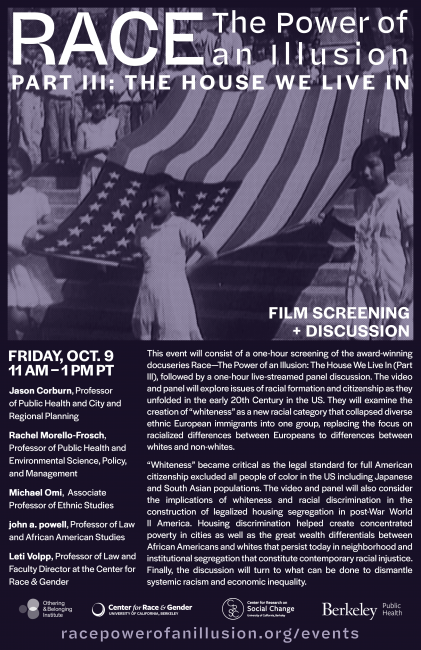Rachel Morello-Frosch focuses on environmental health and environmental justice. She is particularly interested in addressing the double jeopardy faced by communities of color and the poor who experience high exposures to environmental hazards and who are more vulnerable to the toxic effects of pollution due to poverty, malnutrition, discrimination, and underlying health conditions. How do matters of race and class affect distributions of health risks in the United States? What are the causes and consequences of environmental disparities and health inequalities? How can research create "upstream" opportunities for intervention and prevention? Morello-Frosch is also interested in evaluating the influence of community participation on environmental health research, science, regulation, and policy-making, as well as in developing methods to foster community-based participatory research.
February 19, 2021: Study Finds Fewer Greenspaces in Historically Redlined Cities (Allegheny Front)
December 7, 2020: Study reveals impact of rising sea levels on affordable housing (The Daily Californian)
December 3, 2020: Rising seas: California’s affordable housing faces worse floods (Cal Matters)
November 19, 2020: Open access study reveals harmful effects of redlining on babies born three generations later (Berkeley Library News)
September 11, 2020: COVID-19 worries douse plans for fire experiments (Science Magazine)
September 2, 2020: Study finds historic redlining led to present-day disparate birth outcomes (The Daily Californian)
August 14, 2020: Historical redlining linked to premature births, smaller babies (Berkeley News)
July 25, 2020: No, You Cannot Put College Football In A Bubble (Forbes)
July 15, 2020: “I Can’t Breathe” What air pollution and police violence have in common (Sierra Club)
June 4, 2020: The Energy 202: Two GOP senators join with Democrats to back bill and help cut emissions from farms (Washington Post)
July 2, 2020: Where Is Illini LB Milo Eifler Getting His COVID-19 Info? A Cal-Berkeley Public Health Expert He Calls ‘Mom’ (Illini Now)
June 12, 2020: Study shows oil and gas wells have adverse effects on pregnancy (The Daily Californian)
June 3, 2020: Living near oil and gas wells tied to low birth weights in infants (Berkeley News)
April 1, 2020: Environmental risks visualized through new online tools (Environmental Factor)
February 28, 2020: UC Berkeley researchers study chemical exposure for women firefighters (The Daily Californian)
February 26, 2020: Women firefighters face high exposure to toxic ‘forever chemicals’ (Berkeley News)
November 10, 2019: 'Nobody gets out without damage': what fighting fire does to the body (The Guardian)
July 9, 2019: Elevated mercury found in blood of some SF firefighters who battled Tubbs Fire (San Francisco Chronicle)
July 20, 2018: Replacing Vacant Lots With Green Spaces Can Ease Depression In Urban Communities (NPR)
July 10, 2018: California’s cap-and-trade air quality benefits go mostly out of state (Berkeley News)
May 22, 2018: Closing coal, oil power plants leads to healthier babies (Berkeley News)
April 3, 2018 Dr. King Said Segregation Harms Us All. Environmental Research Shows He Was Right. (New York Times)
August 7, 2017: Stress and air pollution - double jeopardy for low-income pregnant women? (Sacramento Bee)
July 25, 2017: Noise pollution loudest in black neighborhoods, segregated cities (Berkeley News)
July 13, 2017: "Stress in pregnancy makes women more vulnerable to smoking and air pollution" (The Daily Mail)
July 12, 2017: Stress worsens effects of toxic chemicals in pregnant women (Berkeley News)
November 7, 2016: Research by campus scientists suggests environmental toxins can accumulate in fetuses (The Daily Californian)
Sept. 23, 2016: "Don’t forsake poor people in climate change fight" (The Sacramento Bee)
Apr. 12, 2016: "Hormonal birth control to be available in local pharmacies without prescription" (The Daily Californian)





